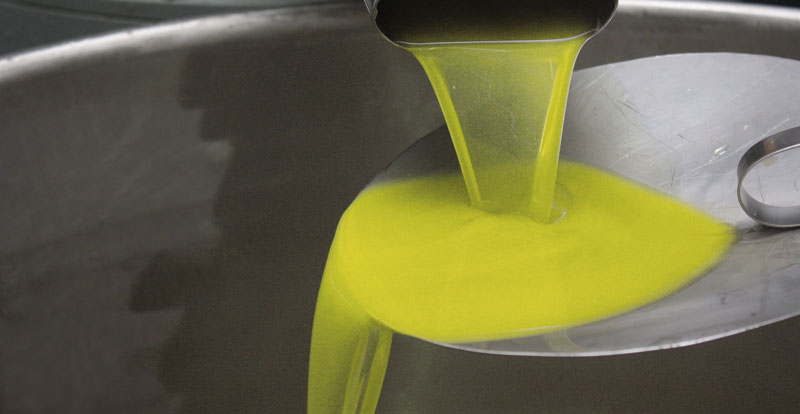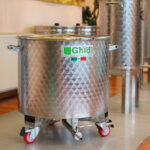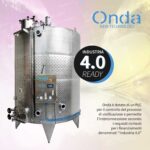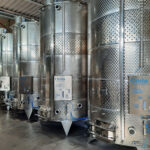Rancid oil: here’s what to do so that theoil retains all its organoleptic properties
Rancidity is a clearly recognizable defect inextra virgin olive oil (and others); it is a natural process that occurs in substances containing unsaturated fatty acids, which undergo the process of oxidation that alters their chemical structure.
When oil becomes rancid, it not only takes on a bad smell and loses its true flavor but also diminishes its positive health effects.
Oxidation of oil can be avoided with some tricks, both in processing and storage.
The amount of antioxidants in the oil aids preservation, and this characteristic depends on the quality of the olives, the timing of harvest and the timing and methods of pressing. Instead, what are the external factors that initiate the actual oxidative process?
Temperature, light, air and oxygen.
TEMPERATURE AND LIGHT
Constant temperature is one of the secrets to maintaining and its organoleptic characteristics of extra virgin olive oil.
The temperature range at which oil should be stored is between 10 and 24°C; the optimum temperature is about 15°C.
Fluctuations in temperature could permanently impair the antioxidant properties of polyphenols and tocopherols, which are also essential elements from an organoleptic point of view.
Light, as electromagnetic radiation, also affects chemical reactions and can therefore cause the composition of an oil to vary.
It would be best to avoid plastic (PVC) containers because some substances could be absorbed by the oil, while a stainless steel container does not release any substances and ensures contact with direct light. In addition, if it is not possible to condition the environment where the tanks are stored, it is possible to equip the tanks with heat exchange band for constant temperature control of the contained oil.
AIR AND OXYGEN
In most cases, a series of oxidative reactions develop in any food in contact with air, changing its chemical composition and organoleptic characteristics.
Fortunately for them, extra virgin olive oils, when they are genuine, possess a number of minor compounds, including tocopherols and polyphenols, which, in addition to determining a higher nutritional value, play a very important antioxidant action that can safeguard the oil itself over time.
Despite the protection of these natural antioxidants, prolonged contact of the oil with air results in its rancidity.
A very effective solution to prevent oxidation is to saturate the vessel with an inert gas such as nitrogen or argon.
Both gases are extremely stable, odorless and tasteless, and suitable for contact with food substances.
The storage technique in which oxygen and atmospheric air are replaced with inert gas is called “controlled or modified atmosphere storage.”
Inert gas can be used with a technique (called “blanketing”) to ensure the absence of oxygen in the “headspace” that is, in the empty part of the storage tank above the oil level.
Inerting involves the introduction of inert gas (taken from suitable cylinders suitable for food use) inside the tank and its discharge into the atmosphere through vent valves, thus maintaining an internal atmosphere that is always inert and at constant pressure.
Products thus protected preserve their specific quality and organoleptic characteristics.
Learn more about “controlled or modified atmosphere storage”









